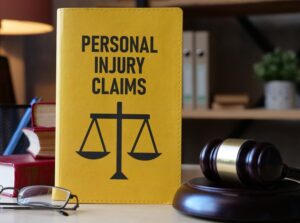Imagine that your day starts like any other—you’re heading to work, taking your kids to school, or simply running errands. Suddenly, everything changes. Whether it’s a car crash on a busy Texas highway, a slip-and-fall at your local grocery store, or an unexpected assault in what you thought was a safe place, your life is turned upside down. You might not even realize it at first, but the jolt to your head or the impact of the fall has caused more than just temporary discomfort. Over time, you begin to notice symptoms that don’t go away—headaches, memory issues, trouble concentrating. What you’re experiencing could be the result of a traumatic brain injury (TBI), a serious condition that can affect every aspect of your life. At Lorenz & Lorenz PLLC, our experienced brain injury lawyers understand the overwhelming emotions and uncertainties that come with a traumatic brain injury. You might be asking yourself, “How did this happen?” and “What can I do now?” We’re here to help you answer those questions. Our goal is to support you through this challenging time by providing the information you need to understand your situation and the legal remedies available to you.
What is a Traumatic Brain Injury?
 Traumatic Brain Injuries are some of the most devastating and life-altering injuries that can result from an accident. If you or a loved one has suffered a TBI, it’s important to understand the causes, how these injuries may affect your life, and the legal options available to you.
A traumatic brain injury occurs when an external force causes damage to the brain. This can happen in various ways, but it generally involves a blow, bump, or jolt to the head. TBIs range from a concussion to a catastrophic injury where there is significant damage to brain tissue.
The symptoms and long-term effects can vary widely, but any TBI can have serious implications for your health, ability to work, and overall quality of life. While some types of TBIs may be called “mild,” it’s important to remember that any head injury is serious and should be treated by a doctor immediately.
Traumatic Brain Injuries are some of the most devastating and life-altering injuries that can result from an accident. If you or a loved one has suffered a TBI, it’s important to understand the causes, how these injuries may affect your life, and the legal options available to you.
A traumatic brain injury occurs when an external force causes damage to the brain. This can happen in various ways, but it generally involves a blow, bump, or jolt to the head. TBIs range from a concussion to a catastrophic injury where there is significant damage to brain tissue.
The symptoms and long-term effects can vary widely, but any TBI can have serious implications for your health, ability to work, and overall quality of life. While some types of TBIs may be called “mild,” it’s important to remember that any head injury is serious and should be treated by a doctor immediately.
Understanding the Impact of a TBI on Your Life
Before diving into the common causes of TBIs, it’s important to acknowledge how such an injury can impact your life. TBIs can lead to a wide range of physical, cognitive, and emotional challenges. Some people may experience headaches, dizziness, and difficulty concentrating, while others may face more severe consequences like memory loss, personality changes, or even coma. These symptoms can make it difficult, if not impossible, to return to work, maintain relationships, or engage in everyday activities. From a legal standpoint, the effects of a TBI are critical when pursuing a personal injury claim. The severity of your injury will play a significant role in determining the compensation you may be entitled to, as it will affect both your economic damages (such as medical bills and lost wages) and non-economic damages (such as pain and suffering).The Most Common Causes of Traumatic Brain Injury
While TBIs can result from various types of accidents, certain scenarios are more commonly associated with these injuries. Understanding these causes can help you recognize whether you may have a claim and, if so, how to proceed. Following are some of the most common causes of traumatic brain injury we see in our law firm.Motor Vehicle Accidents
One of the most common causes of TBIs is motor vehicle accidents. In Texas, car crashes, motorcycle accidents, and truck collisions are all significant contributors to brain injuries. The force of impact during a collision can cause the brain to strike the inside of the skull, leading to bruising, bleeding, or tearing of brain tissue. Motor vehicle accidents often involve a range of negligent behaviors, such as distracted driving, speeding, or driving under the influence. If another driver’s negligence caused the accident that led to your TBI, you might have grounds for a personal injury claim. In Texas, the at-fault driver can be held liable for your damages, including medical expenses, lost wages, and pain and suffering.Falls
Falls are another leading cause of TBIs, particularly among older adults and young children. Whether you slip and fall in a grocery store, trip on uneven pavement, or fall from a ladder at work, the impact can result in a serious brain injury. In many cases, falls occur due to hazardous conditions on someone else’s property, such as wet floors, poor lighting, or lack of handrails. Under Texas premises liability law, property owners have a duty to maintain safe conditions and warn visitors of potential dangers. If you suffered a TBI due to a fall on someone else’s property, you might be able to file a premises liability claim to seek compensation for your injuries.Workplace Accidents
Workplace accidents, particularly in industries like construction, can also lead to TBIs. Workers may suffer a brain injury if they are struck by falling objects, caught in machinery, or involved in a heavy equipment accident. Even in an office setting, a slip and fall could result in a TBI. In Texas, workers’ compensation laws typically cover workplace injuries, including head injuries. However, if your injury was caused by a third party, such as a subcontractor or equipment manufacturer, you might also have the option to file a personal injury lawsuit. This could provide additional compensation beyond what workers’ comp offers, such as damages for pain and suffering.Sports and Recreational Activities
Engaging in sports and recreational activities is another common cause of TBIs. Contact sports like football, boxing, and hockey carry a higher risk of head injuries, but even non-contact sports like cycling or skateboarding can result in a TBI if proper safety measures aren’t followed. If your TBI occurred during an organized sports event, the liability might extend to coaches, schools, or sports organizations, especially if there was a failure to provide adequate safety equipment or properly address previous injuries. In cases where defective equipment contributed to the injury, the manufacturer could also be held responsible.Assaults, Violence, and Inadequate Security
Unfortunately, not all TBIs result from accidents—some are caused by intentional acts of violence. Assaults, domestic violence, and other forms of physical altercations can lead to serious brain injuries. In these cases, the person who committed the violent act can be held liable for your injuries through a personal injury claim or, in some cases, a civil lawsuit. In some situations, however, the responsibility for your injuries may extend beyond the person who directly caused the harm. If your TBI resulted from an assault that occurred on someone else's property, such as in an apartment complex, hotel, or shopping center, you might have a premises liability claim against the property owner. Under Texas law, property owners have a duty to provide adequate security to protect visitors and tenants from foreseeable dangers, including criminal acts. When a property owner fails to take reasonable steps to ensure safety—such as installing proper lighting, hiring security personnel, or maintaining secure entrances—they can be held liable if their negligence contributed to the assault that caused your injury. This is known as an inadequate security claim, a subset of premises liability law. For example, if you were attacked in a poorly lit parking lot of a shopping center that had a history of violent crimes, the property owner might be considered negligent for not taking sufficient measures to protect customers. In such a case, you could potentially pursue compensation not only from the assailant but also from the property owner for their role in allowing the dangerous conditions to exist. In Texas, proving inadequate security as a cause of your TBI involves demonstrating that the property owner knew or should have known about the risk of criminal activity and failed to take appropriate action to prevent it. This type of claim can be complex, but it can provide a pathway to recovering compensation for medical bills, lost wages, pain and suffering, and other damages related to your brain injury.Medical Malpractice and Birth Injuries
Medical errors, such as surgical mistakes, misdiagnosis, or anesthesia errors, can also lead to TBIs. For example, if a doctor fails to properly monitor a patient during surgery, it could result in a lack of oxygen to the brain, causing a traumatic brain injury. One particularly heartbreaking form of TBI occurs during childbirth. Birth injuries can happen when medical professionals fail to follow the standard of care during labor and delivery. For instance, if a baby is deprived of oxygen for too long due to delayed or improper use of delivery instruments, or if there is a failure to perform an emergency C-section when necessary, the child can suffer a TBI that may lead to lifelong complications such as cerebral palsy, developmental delays, or other cognitive impairments. Birth injuries resulting in a TBI are especially tragic because they affect the most vulnerable and innocent among us—newborns who have their whole lives ahead of them. These injuries can place an enormous emotional and financial burden on families, as they may require ongoing medical care, therapy, and special education services. Proving medical malpractice in birth injury cases involves showing that the healthcare provider’s negligence directly caused harm to the baby. This can include failures in monitoring fetal distress, improper handling during delivery, or delays in critical medical interventions.How a TBI Affects Your Personal Injury Claim
 If you’ve suffered a TBI due to someone else’s negligence, your lawyer can weigh how your injury will impact your personal injury claim. The severity and long-term effects of a TBI can significantly influence the amount of compensation you may be entitled to. A brain injury attorney will look at the following elements in evaluating your potential personal injury claim.
If you’ve suffered a TBI due to someone else’s negligence, your lawyer can weigh how your injury will impact your personal injury claim. The severity and long-term effects of a TBI can significantly influence the amount of compensation you may be entitled to. A brain injury attorney will look at the following elements in evaluating your potential personal injury claim.
